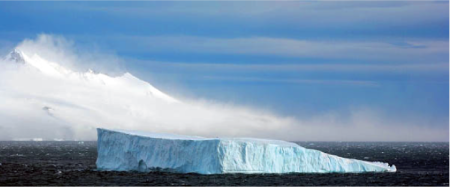| SEARCH |
-

Nov 17, 2015
Reflections on a three-decade legacy
The International Geosphere-Biosphere Programme (IGBP) will come to a close at t...
-
Nov 17, 2015
Use of and access to content on this website
Text and images produced by IGBP in house are free to use with appropriate credi...
-
Nov 12, 2015
Bella Gaia performance and panel discussion to mark IGBP's closure
A musical performance by Bella Gaia will celebrate the achievements and legacy o...
-

Towards Future Earth:
evolution or revolution?
During its three decades of existence, the International Geosphere-Biosphere Pro...
-
A personal note on IGBP and the social sciences
Humans are an integral component of the Earth system as conceptualised by IGBP. João Morais recalls key milestones in IGBP’s engagement with the social sciences and offers some words of advice for Future Earth.
-
IGBP and Earth observation:
a co-evolution
The iconic images of Earth beamed back by the earliest spacecraft helped to galvanise interest in our planet’s environment. The subsequent evolution and development of satellites for Earth observation has been intricately linked with that of IGBP and other global-change research programmes, write Jack Kaye and Cat Downy .
-
Deltas at risk
Around 500 million people worldwide live on deltas, but many of the world's deltas are sinking due ...
-
Climate change: the state of the science
A new data visualization released on the first day of the plenary negotiations at the UNFCCC’s clima...
-
Climate Change:
the State of the Science
Videos now online from the Stockholm public forum to mark the launch of the IPCC's climate report, 2...
Plankton, from the last ice age to the year 3
007
Pielou E C

Climate forcing of the environment and biota has been happening since time immemorial, human forcing only for the past 200 years or so. This paper considers, first, climatic changes over the past 30 000 years, as indicated by plankton and their effects on plankton. Only fossilizable plankton can be observed: principally foraminifera, radiolaria, and pteropods in the zooplankton, and their food, principally coccolithophores, diatoms, and dinoflagellate cysts, in the phytoplankton. The soft-bodied zooplankton species—especially copepods—that lived with them can only be inferred. Large, abrupt climate changes took place, aided by positive feedback. Second, this paper attempts to predict how human forcing in the form of anthropogenic climate change is likely to affect marine ecosystems in the future. Past predictions have underestimated the speed at which warming is actually happening: positive feedback has been unexpectedly strong. Thus, the melting of snow and ice, by reducing the earth's albedo, has increased the amount of solar energy absorbed. Also, warming of the surface (water and land) has caused outgassing of methane from buried clathrates (hydrates), and methane is a strong greenhouse gas. Currently, predictions emphasize one or the other of two contrasted alternatives: abrupt cooling caused by a shutdown of the thermohaline circulation (the “ocean conveyor”) or abrupt warming caused by copious outgassing of methane. Both arguments (the former from oceanographers and the latter from geophysicists) are equally persuasive, and I have chosen to explore the methane alternative, because I am familiar with an area (the Beaufort Sea and Mackenzie Delta) where outgassing has recently (2007) been detected and is happening now: in the Arctic Ocean and the Canadian Arctic Archipelago, where disappearance of the ice will affect currents, temperature, thermocline, salinity, upwelling, and nutrients, with consequent effects on the zooplankton.

IGBP closed at the end of 2015. This website is no longer updated.
-

Global Change Magazine No. 84
This final issue of the magazine takes stock of IGBP’s scientific and institutional accomplishments as well as its contributions to policy and capacity building. It features interviews of several past...
-

Global Change Magazine No. 83
This issue features a special section on carbon. You can read about peak greenhouse-gas emissions in China, the mitigation of black carbon emissions and the effect of the 2010-2011 La Niña event on gl...
-
INTERGOVERNMENTAL PANEL ON CLIMATE CHANGE:
How green is my future?
UN panel foresees big growth in renewable energy, but policies will dictate just how big.
-
UK:
'The Anthropocene: a new epoch of geological time?'
Royal Society, Philosphical Transactions A




















